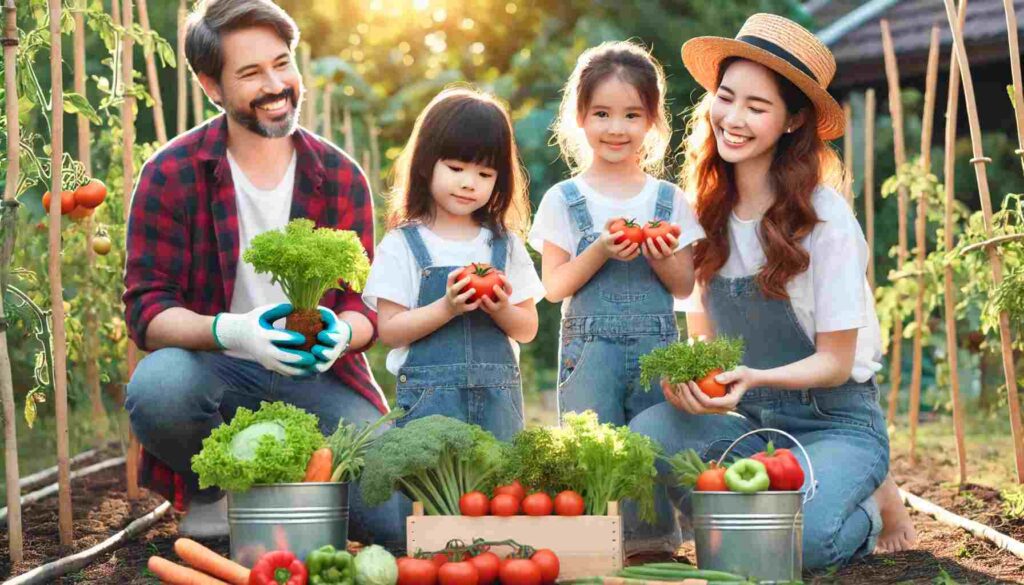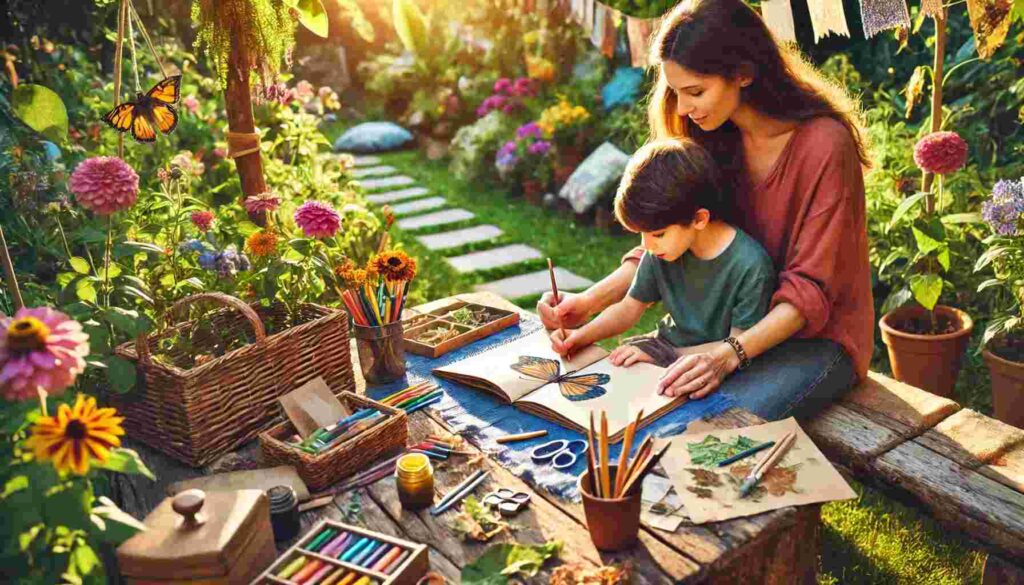Here, I am thrilled to guide you on this journey! Draft for Your Blog Article: How to Put Together a Kid-Friendly Organic Garden Getting Started on An Organic Garden With Kids ~ Eco-Friendly Today, the world and our future need our children to learn about various sustainability and eco issues. What better way to do this than with an organic garden you both create? Gardening fosters a love for nature and is an excellent time to learn about where our food comes from and the value of healthy eating. This straightforward guide will help you start with your little ones on this beautiful, eco-friendly gardening journey. Why Create an Organic Garden? Organic gardening: An approach to growing plants that avoids synthetic fertilisers, pesticides, and genetically modified organisms. It uses natural procedures and materials to assist plant flourishment and encourage soil fertility. Demystifying the Organic Garden Here are some key benefits of organic gardening: Safer and Healthier Food: Firstly, organic vegetables and fruits are grown without harmful chemicals, making them much safer to eat. EnvironmentalBenefits: Organic gardening helps reduce pollution and supports biodiversity by avoiding synthetic chemicals in horticulture. Key: Teaching kids about biology, ecology, and nutrition with a real-life experience. Exercise: You can get kids out and exercise through gardening because it exercises their overall physical health. By engaging in organic gardening, you teach your children valuable life skills and significantly contribute to the environment.
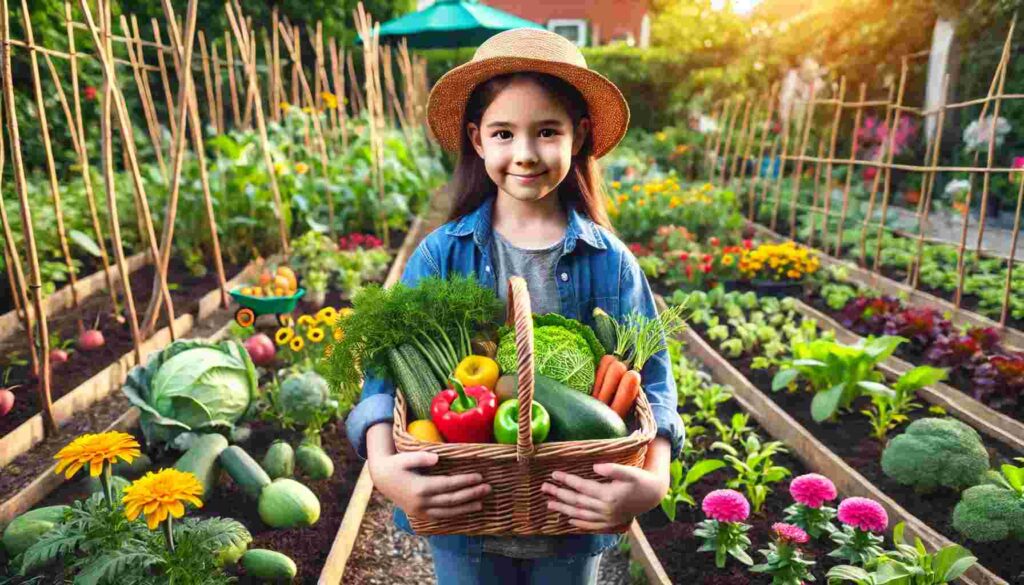
1. Plan Your Garden:
Engage Kids in the Planning Process: To make this a joint project, involve your children in the planning process. Pick a site for your garden with full sunlight and well-drained soil. Decide what you want to grow. Tomatoes, carrots, and beans are very simple to grow, and children can pick every one of these beautiful vegetables themselves. This gives them a sense of ownership and teaches them responsibility and the value of planning.
2. Prepare the Soil:
At the end of the day, to me, as a gardener, healthy soil is an organic garden. Teach your children how to improve the soil by including compost and organic manure. Another activity: How does composting work and help plants grow? Get your kids involved in creating their compost, which will help them understand the value of recycling food scraps and yard waste and get them outside doing something good for the planet.
3. Choose organic seeds and plants:
Selecting Organic Seeds and Transplants: Choose organic seeds and transplants. Teach your children about the importance of organic vs. non-organic seeds. Beware of buying genetically altered seeds. Many garden centres now offer a large assortment of organic seeds and seedlings, not just hybrids, which will be grown with potentially very little difference in the product you take home, only the value of good-quality fruits.
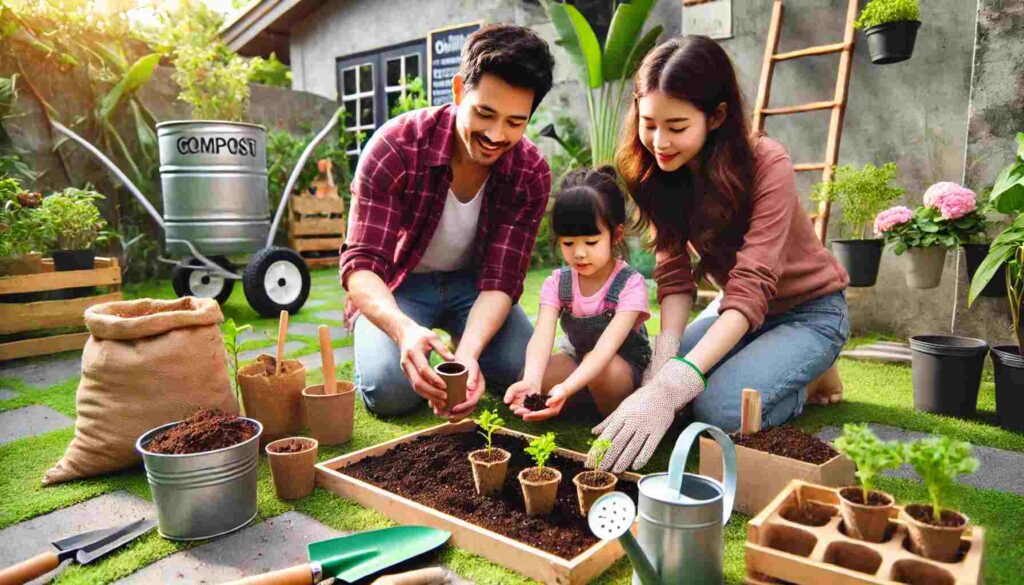
4. Planting:
Plant some seeds or seedlings with your kids and allow them to get dirty. Show them the correct distance to grow plants and how much water they should use. This activity helps kids learn hands-on while teaching them about plant growth and care.
5. Watering and Maintenance
Teach your children the right way to water the garden. For instance, why do we water early in the morning or late in the afternoon to save on watering and reduce evaporation? These should be encouraged to maintain the moisture in their soil and water it is necessary.
6. Natural Pest Control:
Educate your kids about organic pest control options, like using beneficial insects (ladybugs & praying mantises) and companion plants that repel pests. Avoid frequent use of chemical pesticides and reason out the environmental harm they do.
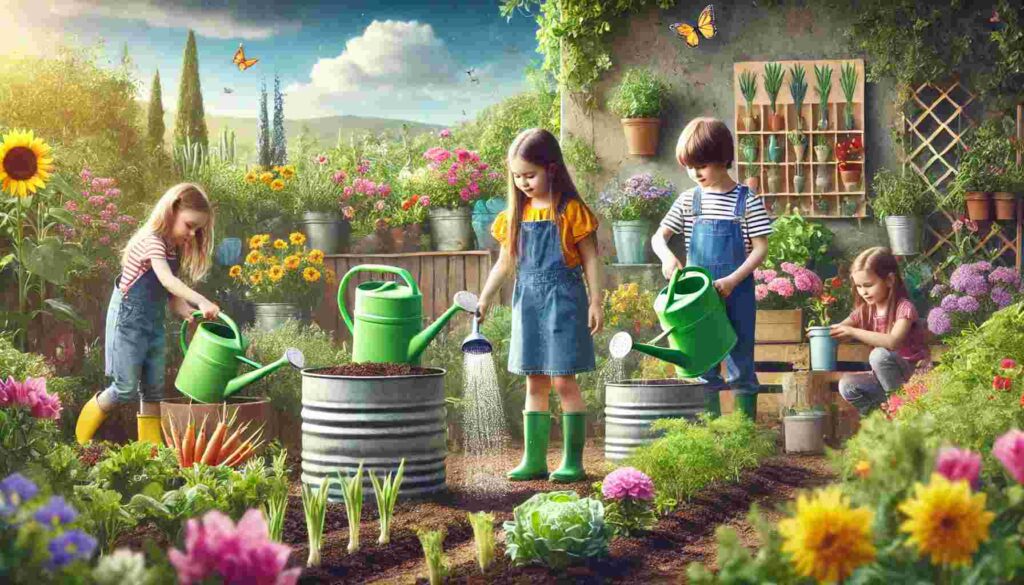
7. Harvesting:
The final reward in gardening is the harvest. Let’s face it: harvesting may be one of the best things about gardening. The only thing you must do is allow your kids to take advantage of it and let them choose in the wake of ripe fruits and vegetables. Not only does this give them a feeling of self-accomplishment, but it also helps them gain interest in the healthy crops mamma and papa want us to eat. Making it Fun and Educational Make a Garden Journal for Kids — Let your kids have their garden journal and encourage them to draw pictures, write about their gardening adventures, and chart the progress of their plants. Crafting: Garden crafts are always fun- planting markers, decorating pots, or building bird feeders. Science Experiments – Run simple experiments such as comparing soil types or plant growth with and without using compost.
Conclusion:
Creating an organic garden with your kids is one of the best ways to bond, teach essential life skills, and instil a love for nature. It serves a variety of functions for your family and the environment. It is not just a project. It is time to get your hardy gardening gloves and go into the garden with the kids! Happy gardening.

